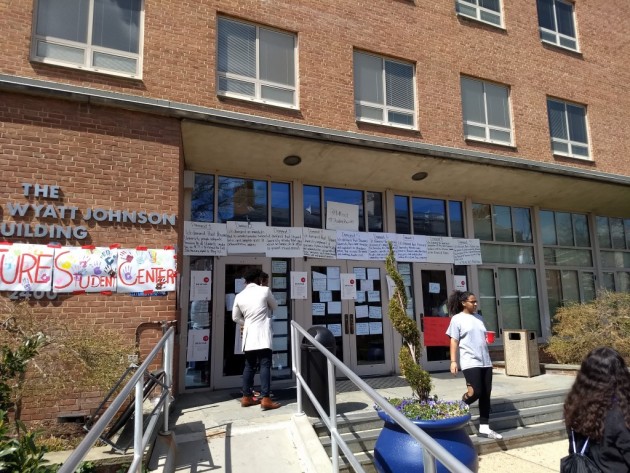African-Americans are four times more likely to suffer from kidney failure than their white counterparts are, 27 percent more likely to die of diabetes than whites and one in 500 African Americans is born with sickle cell anemia. In a survey done by the Howard University John H. Johnson School of Communications and The Washington Post only 16.5 percent of 1,250 18- to 30-year-olds polled, are “very aware” of these issues.
Howard University’s television station WHUT, hosted a forum on March 30, to present the findings of the survey and discuss ways to increase health awareness. Titled, “Prevention is the Best Medicine,” the panel featured Dr. Griffin P. Rodgers, Acting Director of the National Institute of Diabetes and Digestive and Kidney Diseases (NIDDK); Dr. Thomas Gaiter, medical director of Howard University Hospital, and Ceci Connolly, the Washington Post’s national health staff writer.
The survey, issued to the Howard University community, polled each respondent’s awareness of major health issues in the African-American community, the awareness of African-Americans as a whole, and aimed to determine what medium would most effectively reach blacks in an effort to increase health awareness.
Moderator January Payne, health staff writer for the Post, started the forum questions by asking Dr. Rodgers about his opinion on how to increase awareness.
Cultural competence, according to Rodgers, is important. Doctors are quick to dismiss culture during a diagnosis. “It’s my job to find a way to complement the culture,” Rodgers said.
Rogers says that health awareness is directly correlated with public health education, and faces issue with a lack of diversity in the medical field.
Connolly, the Washington Post’s national health staff writer put some of the blame on the media. “Journalists tend to go to the same old sources over and over.” She suggested that journalists instead speak to often-untapped sources, like Rodgers and Gaiter.
Rodgers discussed his focus €” diabetes. “The rate at which young adults are getting adult-onset diabetes is alarming,” he said. According to Rodgers, a child born in 2000 may have a lower life expectancy than his parents or grandparents. He talked about the National Institute of Health (NIH) Diabetes Prevention Trial, which indicates that diabetes is “not inevitable.” Rogers states, “It’s important that the African-American community is apprised of this research.”
The panel also discussed HIV/AIDS in the District, and the fact that D.C. has the highest rate of the virus of any city in the country.
This was explained by Connolly: “Condom distribution has fallen dramatically,” she said. “There is a lack of data collection. You need that information to target particular groups, and for some reason, there is little data collection going on in DC.”
Gaiter introduced Dr. Cecelia Maxwell, who works in the Howard University Hospital in infectious diseases. Maxwell explained an initiative which targets women in Ward 7, which has one of the highest rates of infection in the District. She said that they are trying to present the fact that “HIV is primarily an STD. It’s preventable, but not curable.”
When asked how best to reach 18- to 30-year-olds, the panelists agreed with the survey €” a multimedia, multi-pronged approach. Connolly noted work done by MTV, and also suggested sporting events. “Really, we should be thinking about how to target 3-, 4-, 5-year-olds.”
Habits €” good or bad €” start early, and according to Connolly, getting into healthy habits early is the key.
“The name of this forum is correct,” Gaiter said. “Prevention truly is the best medicine.”
The survey, issued to the Howard University community, polled each respondent’s awareness of major health issues in the African-American community, the awareness of African-Americans as a whole, and aimed to determine what medium would most effectively reach blacks in an effort to increase health awareness.


